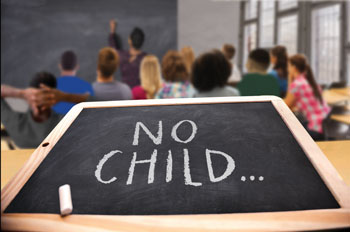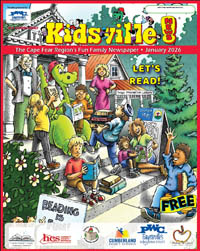 Nilaja Sun’s “No Child …” is a play about a play. The setting is a public high school in the Bronx in 2006. The characters are students, teachers and faculty.
Nilaja Sun’s “No Child …” is a play about a play. The setting is a public high school in the Bronx in 2006. The characters are students, teachers and faculty. On the surface, as the title indicates, the story highlights the issues of the public education system. Just below the surface is a powerful statement about the soft bigotry of low expectations placed on economically disadvantaged students.
Teaching artist Ms. Sun, played by Tara Whitney Rison, comes into Malcolm X High School to lead a 10th-grade class to present a play. Her enthusiasm is greeted with scorn, bad language and bad attitudes. Over the next six weeks, she slowly breaks down barriers. Her steadfast willingness to see the potential in every student encourages loyalty and commitment from the class.
The students are caricatures of troubled teenagers — the class clown, the thug, the international student, the shy kid and so on. While the performances bring a lot of laughs, there is a serious undertone that kids who are told repeatedly that they are the worst will become the worst.
Director Kaja Dunn brings together a fantastic cast of five actors who play 16 characters. It is a treat to see each of these actors shift between two to four characters, sometimes between sentences. The dialogue is fast-paced and gives the audience a peek into how a lone teacher must wrangle a classroom of rowdy students.
The cast includes Ja’Maul Johnson, Andrea Somera, Brandon Rivera and Monet Noelle Marshall. All deliver fine performances in their various roles. Johnson also serves as the narrator in his role as the school janitor who grounds the story with history and details.
An admirable quality of the play is the lack of finger-pointing, which has become the norm in the discourse on public education. Bureaucracy, bad teachers, bad students, uninvolved parents — honestly, there is enough blame to go around. But Dunn and the cast present the story as students and teachers across this country see it — the reality of struggle. “No Child …” is the presentation of the struggle of children to be accepted, to be loved and encouraged. It is the presentation of the struggle of teachers to reach their students.
Ms. Sun’s selection of play is apropos to the struggle of many disadvantaged students. She has the class present Timberlake Wertenbaker’s “Our Country’s Good,” which explores how drama and language can become a refuge from the hopelessness of grim conditions.
The play itself is adapted from the Thomas Keneally novel “The Playmaker,” a story about a group of British Royal Marines and convicts in a penal colony in Australia in the 1700s.
While such an origin story may not seem applicable to public school students in the 21st century, it shows the restorative power of drama as a means of giving purpose and a sense of community to a group of social outcasts. It gives credence to the idea that people born without a chance deserve a chance to become something better.
Simply highlighting the similarities between characters in a story about prisoners in the 1700s and students in modern America doesn’t necessarily make any profound statement that fixes any problems in public education. But it does point out that there is value in the effort of even one teacher who is able to reach one student.
The Cape Fear Regional Theatre is presenting “No Child …” through Nov. 17. For information on ticket discounts for teachers and military, call the box office at 910-323-4233.

 How to resolve AdBlock issue?
How to resolve AdBlock issue? 








